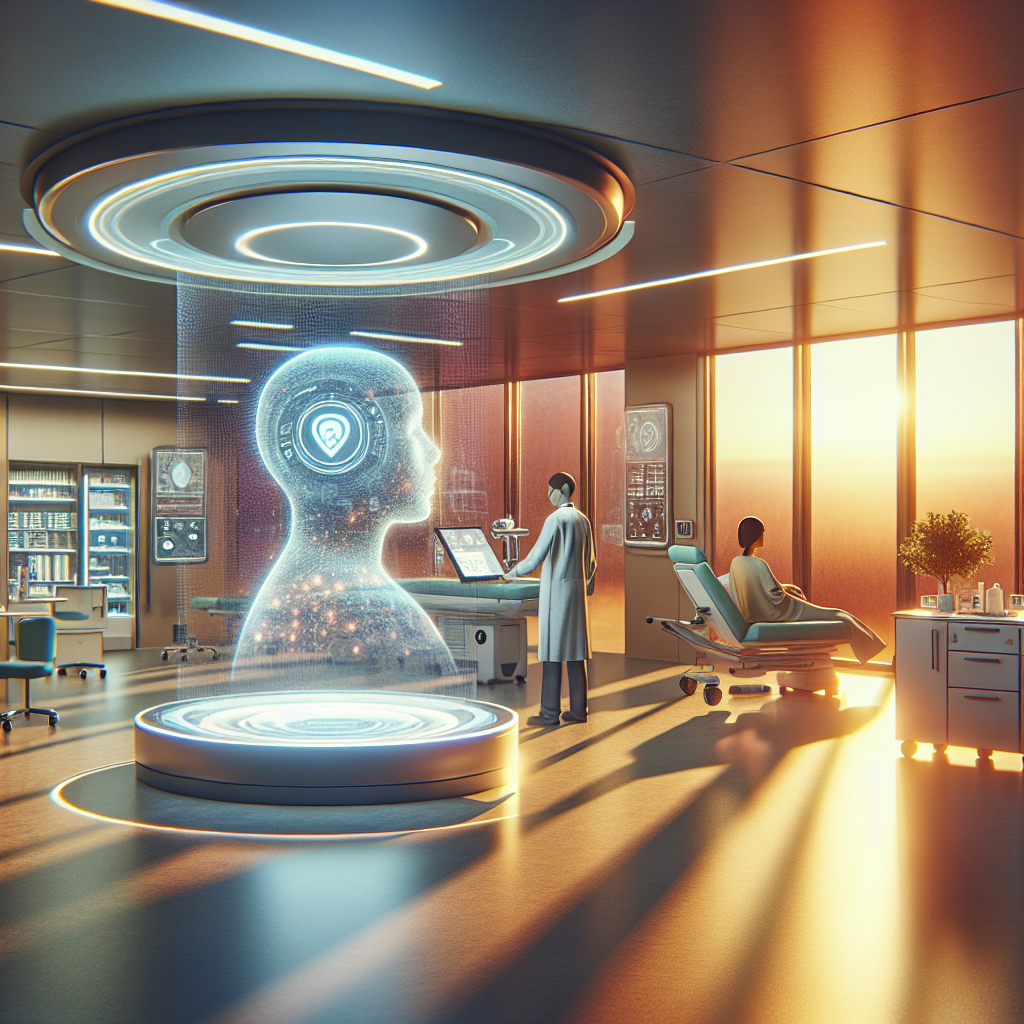Are AI-Generated Visit Summaries the Future of Healthcare?

The integration of artificial intelligence (AI) into healthcare has been transformative, offering new ways to enhance patient care, streamline operations, and reduce costs. One of the most promising applications of AI in healthcare is the generation of visit summaries. These AI-generated documents aim to capture the essence of patient visits, providing a concise and accurate record that can be used by healthcare providers, patients, and insurance companies. This article explores whether AI-generated visit summaries are the future of healthcare, examining their potential benefits, challenges, and implications for the industry.
The Role of AI in Healthcare
AI has been making significant inroads into various sectors, and healthcare is no exception. The technology is being used to analyze medical data, predict patient outcomes, and even assist in surgeries. AI’s ability to process vast amounts of data quickly and accurately makes it an invaluable tool in the healthcare industry.
One of the primary roles of AI in healthcare is to enhance decision-making. By analyzing patient data, AI can help doctors make more informed decisions about diagnoses and treatment plans. This is particularly useful in complex cases where multiple factors need to be considered.
AI is also being used to improve patient engagement. Through chatbots and virtual assistants, patients can receive immediate responses to their queries, schedule appointments, and even receive reminders for medication. This not only improves patient satisfaction but also reduces the workload on healthcare staff.
Moreover, AI is playing a crucial role in medical research. By analyzing large datasets, AI can identify patterns and correlations that might be missed by human researchers. This can lead to new insights and breakthroughs in medical science.
- Enhancing decision-making through data analysis
- Improving patient engagement with chatbots and virtual assistants
- Facilitating medical research by identifying patterns in data
Benefits of AI-Generated Visit Summaries
AI-generated visit summaries offer several benefits that could revolutionize the healthcare industry. One of the most significant advantages is the reduction in administrative burden. Healthcare providers often spend a considerable amount of time documenting patient visits, which can detract from the time available for patient care. AI-generated summaries can automate this process, allowing providers to focus more on their patients.
Another benefit is the potential for improved accuracy. Human error is a common issue in medical documentation, leading to incomplete or incorrect records. AI can help mitigate this risk by ensuring that all relevant information is captured and accurately recorded.
AI-generated summaries can also enhance communication between healthcare providers. By providing a standardized format, these summaries can ensure that all providers involved in a patient’s care have access to the same information. This can improve coordination and reduce the risk of miscommunication.
Furthermore, AI-generated visit summaries can empower patients by providing them with clear and concise information about their healthcare visits. This can help patients better understand their health conditions and treatment plans, leading to improved adherence and outcomes.
- Reducing administrative burden for healthcare providers
- Improving accuracy of medical documentation
- Enhancing communication between healthcare providers
- Empowering patients with clear and concise information
Challenges and Limitations
Despite the potential benefits, there are several challenges and limitations associated with AI-generated visit summaries. One of the primary concerns is data privacy and security. Healthcare data is highly sensitive, and any breach could have serious consequences for patients and providers. Ensuring that AI systems are secure and compliant with regulations is essential.
Another challenge is the potential for bias in AI algorithms. If the data used to train AI systems is biased, the resulting summaries could also be biased. This could lead to disparities in care and outcomes for different patient groups.
There is also the issue of integration with existing systems. Many healthcare providers use legacy systems that may not be compatible with AI technology. Integrating AI-generated summaries into these systems could require significant time and resources.
Finally, there is the question of trust. Healthcare providers and patients may be hesitant to rely on AI-generated summaries, particularly if they are not familiar with the technology. Building trust will be crucial for the widespread adoption of AI-generated visit summaries.
- Ensuring data privacy and security
- Addressing potential bias in AI algorithms
- Integrating with existing healthcare systems
- Building trust among providers and patients
Case Studies and Real-World Applications
Several healthcare organizations have already begun implementing AI-generated visit summaries, providing valuable insights into their potential impact. For example, a large hospital system in the United States has integrated AI-generated summaries into its electronic health record (EHR) system. The hospital reported a significant reduction in the time spent on documentation, allowing providers to spend more time with patients.
Another case study involves a primary care clinic that used AI-generated summaries to improve communication between providers. The clinic found that the standardized format of the summaries helped ensure that all providers had access to the same information, reducing the risk of miscommunication and improving patient outcomes.
In the UK, a pilot program was launched to test the use of AI-generated visit summaries in general practice. The program found that patients appreciated the clear and concise information provided by the summaries, which helped them better understand their health conditions and treatment plans.
These case studies demonstrate the potential benefits of AI-generated visit summaries, but they also highlight the importance of addressing the challenges and limitations associated with their use.
- Reduction in documentation time in a US hospital system
- Improved communication in a primary care clinic
- Patient empowerment in a UK pilot program
The Future of AI-Generated Visit Summaries
As AI technology continues to advance, the potential for AI-generated visit summaries to transform healthcare is significant. However, realizing this potential will require addressing the challenges and limitations discussed earlier. Ensuring data privacy and security, addressing bias, integrating with existing systems, and building trust will be crucial for the widespread adoption of AI-generated visit summaries.
In the future, AI-generated visit summaries could become an integral part of the healthcare system, providing a standardized and accurate record of patient visits. This could lead to improved patient care, reduced administrative burden, and enhanced communication between providers.
Moreover, as AI technology continues to evolve, the capabilities of AI-generated visit summaries could expand. For example, AI could be used to analyze visit summaries and provide insights into patient outcomes, helping providers make more informed decisions about treatment plans.
Ultimately, the future of AI-generated visit summaries will depend on the willingness of healthcare providers, patients, and policymakers to embrace the technology and address the challenges associated with its use.
- Addressing challenges for widespread adoption
- Potential for improved patient care and reduced burden
- Expanding capabilities with evolving AI technology
Conclusion
AI-generated visit summaries have the potential to revolutionize the healthcare industry by reducing administrative burden, improving accuracy, enhancing communication, and empowering patients. However, realizing this potential will require addressing challenges related to data privacy, bias, integration, and trust. As AI technology continues to advance, the capabilities of AI-generated visit summaries are likely to expand, offering new opportunities to improve patient care and outcomes. The future of AI-generated visit summaries will depend on the willingness of healthcare providers, patients, and policymakers to embrace the technology and address the challenges associated with its use.





